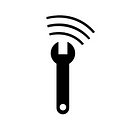So You Want to Talk About Tech?
Neha Kulsh (she/her) is a 2022 Summer Fellow with the Mayor’s Office of New Urban Mechanics, expanding upon DTPR signage and the What The Tech video series to make it easier to understand what technology is on our streets and why.
When it comes to communicating about technology, it doesn’t take much to lose an audience. Few of us have the time or patience to pay attention — to say, read through novella-length terms and conditions, or stay up to date on shape-shifting privacy policies — unless things go terribly wrong.
Given these challenges, good storytelling is particularly critical to explain how technology operates. Last year Apple released a 68-second ad about app privacy, following a man in London, Felix, as he wordlessly carries out his daily activities. “To walk alone in London is the greatest rest,” Virginia Woolf wrote. This is not Felix’s experience. Throughout the day, he is stalked by people representing his data footprint as he traverses London, buys coffee, takes a cab. (The barista slides in too, mechanically reciting Felix’s personal information as if it were his own.) Soon Felix is trailed by a mob — the human embodiment of online tracking.
But even after he selects the iPhone setting that releases him from this dystopian nightmare, technology still has its eye on him. With nearly 700,000 cameras, London is the most surveilled city in the Western world. How do you opt out of that?
A modern city street has a torrent of technology we could easily miss — sensors, cameras — all collecting data. Helping people make sense of this technological infrastructure is the topic of my work this summer.
Someone at City Hall recently said to me, on the subject of deploying technology in cities, “People either don’t care, don’t get it, or think it’s out to get them.” That last concern is not a matter of messaging but rather a deep, structural issue. Public trust in city technology must be earned over time; no amount of storytelling can paper over poor policy decisions.
However, once cities assure us they are acting in good faith by procuring products that protect the public and collecting data responsibly, the first two concerns (“don’t care, don’t get it”) can be addressed through proper messaging. First, cities must speak plainly and avoid opaque jargon that can confuse or intimidate. Second, to get people to care, cities must connect the purpose of technology to people’s daily lives through concrete and vivid examples. For instance, traffic cameras become relevant when we understand how transportation planners use their data to change roadways so neighborhood streets are safer to walk and bike.
We can also look to innovative communication efforts across industries and disciplines as we continue to chisel the arc of technology’s narrative. Two years ago, one of my grad school professors argued that the most hard-nosed businessperson who could ‘speak’ the language of strategy and finance ought to lead equity and inclusion efforts to embed those goals throughout an organization. That same logic could be applied to the realm of technology, if we commit to selecting the most thoughtful and measured communicators as leaders of municipal technology departments. In time, we hope folks will notice those efforts and communicate back with us — seeing, and shaping, the invisible forces that shape our lives.
Neha is curious about the drivers that motivate people to behave differently and how cities might apply those insights to better serve the public. Previously, Neha supported the civic innovation teams at the Cities of Los Angeles and Glendale, where she worked on a pilot program to increase affordable housing for older adults, designed collateral for a vaccination outreach campaign, and researched effective traffic safety strategies. Neha earned her BA from the University of California, Berkeley, and MBA from Yale University.
About the fellowship:
The New Urban Mechanics Summer Fellowship is designed for entrepreneurial students and professionals interested in working in public service. During this highly selective eight-week program, summer fellows work as a team and on their own projects, generating and implementing creative and thoughtful new prototypes to benefit the City of Boston.
